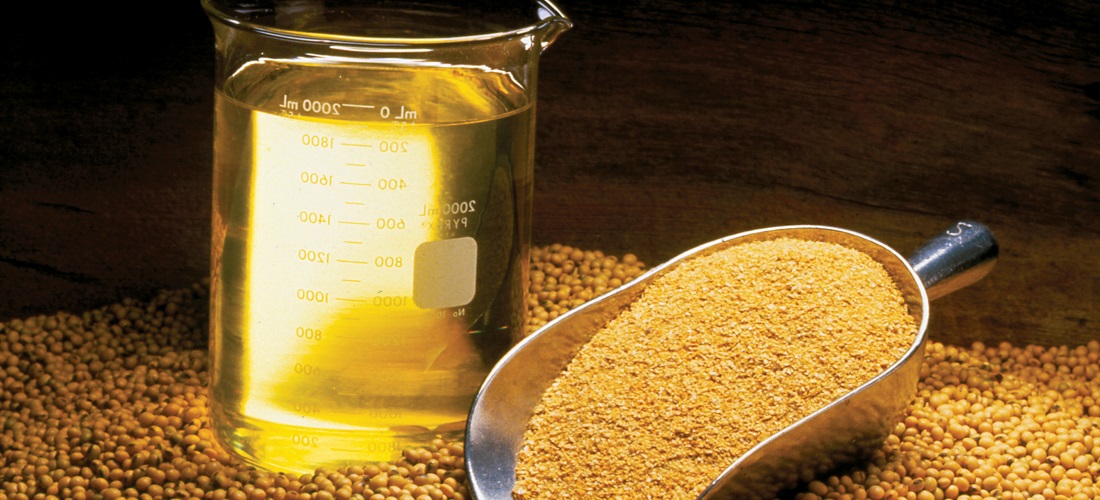
Soybean industrialization receives R$5.7bn in investments
Sep, 24, 2024 Posted by Gabriel MalheirosWeek 202438
Companies in the soybean supply chain will invest R$5.76 billion in the expansion and construction of new industrial plants over the next 12 months, according to a survey by the Brazilian Association of Vegetable Oil Industries (ABIOVE). The amount is 4% lower than the R$6 billion that companies spent in the last 12 months, but it remains significant: by comparison, from 2020 to 2022, investments were much lower, totaling R$2.5 billion over three years.
“It is still a considerable investment, especially given the unused capacity. This shows companies believe in long-term demand growth,” ABIOVE’s chief economist, Daniel Amaral, told Valor.
According to Mr. Amaral, investments will see a slight decrease year over year because part of the installed capacity was underutilized. Over the last 12 months, the industry’s installed capacity grew by 4.5%, or 3.1 million tonnes, reaching 72.3 million tonnes yearly. The idle capacity is 24.6%. The number of active plants increased to 113 units from 106, while the number of idle units dropped to 19 from 22.
Investment plans for the next 12 months include the construction of five new soybean crushing plants and the expansion of five other industrial facilities, ABIOVE said. This will result in an additional capacity of 19,350 tonnes per day, increasing the total daily capacity to 238,410 tonnes. Annually, this would represent a capacity of 78.7 million tonnes, an increase of 8.8%.
The expansion of production capacity is driven by expectations of a potential record harvest in the 2024/25 cycle and a growing demand for soybean oil for biodiesel and soybean meal for animal feed. ABIOVE has yet to make its forecast for the harvest. The National Supply Company (CONAB) estimates that the soybean cultivation area will grow by 3% in the 2024/25 season to 47.4 million hectares, and production will increase by 12.8%, reaching 166.3 million tonnes.
On the demand side, biodiesel production, which will reach 8.9 billion liters in 2024, is expected to hit 10.1 billion liters next year, according to the Brazilian Union of Biodiesel and Biojet Fuel (UBRABIO). In Brazil, soybean oil is the main raw material for biofuel. In March 2025, the mandatory biodiesel blend in diesel will rise to 15% from 14%.
Additionally, the National Congress has passed the Fuel of the Future program, which mandates a 1 percentage point annual increase in biodiesel blending with fossil diesel until 2030, when it will reach 20%. The voluntary increase in biodiesel content no longer requires approval from the National Petroleum Agency (ANP). To implement the increase, companies only need to notify the agency.
Regarding soybean meal, CONAB forecasts an increase in exports, and with the expected rise in beef, poultry, and pork shipments, the product’s use in domestic animal feed is also set to grow.
One of the new soybean processing projects comes from the COMIGO, an agro-industry cooperative of farmers from Goiás state. This year, the cooperative began investing R$1.3 billion to set up a plant in Palmeiras de Goiás, with a daily processing capacity of 5,000 tonnes of soybeans. Olfar is also setting up a soybean processing unit in Porangatu, also in Goiás, that will process 3,000 tonnes per day. The company has not disclosed the amount invested in the plant, which is expected to begin operations by the end of 2025.
In Paraná, the Potencial Group is investing R$1.7 billion in a new biodiesel plant with a production capacity of 900 million liters of biodiesel per year. The facility will be located in Lapa and is set to begin operations in 2026.
Among expansion projects, Caramuru Alimentos is investing R$210 million to double its processing capacity in Ipameri (Goiás) by 2025, bringing it to 900,000 tonnes per year. Cocamar is investing R$500 million to increase its processing capacity in Maringá (Paraná) by 50%, reaching 1.5 million tonnes per year. Agrodanieli is investing R$240 million to triple soybean processing capacity at its Tapejara (Rio Grande do Sul) plant and to build a new fertilizer plant.
Translation: Carlos Dias
Source: Valor International
-
Ports and Terminals
Apr, 07, 2021
0
Açu to build oil storage park in northern Fluminense
-
Ports and Terminals
Mar, 21, 2021
0
FFI and Port of Açu to develop green industrial projects in Rio
-
Ports and Terminals
Mar, 08, 2020
0
2.7 million TEU handled by Brazil`s ports in 2019
-
Economy
Apr, 30, 2020
0
25% rise in exports to China helps soften the coronavirus pandemic’s impact on Brazil’s economy



